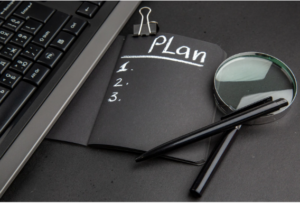
Strategies to Tackle High-Interest Debt After the Holidays
In Canada, many of us are faced with high-interest debt after the holidays. It’s easy to get swept up in the giving and spending mood during the holidays, but reality sets in come January. Paying off this debt is essential to keeping your finances in order. In this blog, we’ll look at practical strategies for effectively managing and reducing high-interest debt. This blog will offer insightful analysis and practical advice to help you take back control of your finances in the new year, regardless of the high-interest debt you’re facing, which may include loans, credit card debt, and other debt.
High-Interest Debt: What It Is and Why It Matters
High-interest debt, such as what we often accumulate on credit cards during the holidays, can be a real issue. Since the interest on this type of debt is high, it grows fast. Thus, it may become more difficult to get out of debt if you don’t pay off this debt quickly. It’s important to understand how this works so you can make informed decisions about how to pay it off. We all want to get off to a good start in the new year, and getting a handle on high-interest debt is a big part of that.
Assessing Your Financial Situation After the Holidays
It’s important to examine your finances closely after the holidays. Make a list of everything you spent money on for the holidays, including presents, décor, and other additional spending. Next, find out how much you owe by reviewing your bank account and credit card statements. Although this may seem a little overwhelming, the first step to paying off your debt is figuring out exactly where you stand. Once you have an overview of your total debt, you can start thinking about how to pay it off. This step is all about confronting the truth about your spending and preparing to take control. Understanding your current financial situation will prepare you for effective debt management in the coming months.
Creating a Customized Debt Repayment Plan

It’s important to design a personalized strategy to pay off your high-interest debt. Assess your monthly income and expenses first to figure out how much you can put toward debt repayment. Paying more than the minimum is important because it will lower the total interest paid over time, especially for high-interest debts. To raise additional money for your debt, think about ways to reduce some of your spending. It is important to be honest and realistic about how much you can afford to pay. You should have enough flexibility in your plan to accommodate any changes in your financial state. Review and adjust your plan as needed to ensure that it is still effective in reducing your debt.
Prioritizing Debts: Tackling High-Interest Rates First
When it comes to debt repayment, it’s best to start with the ones with the highest interest rates, such as credit card debts. These debts accumulate over time and cost you more money, so getting them under control may save you money. List all of your debts and include the interest rates on them. Pay more towards the ones with the highest interest rates while making minimum payments on the others. This method reduces the amount of interest you pay, allowing you to free up money to pay off other debts sooner.
Consumer Proposal
A consumer proposal avails you the opportunity to pay less than what you owe, you can reduce your debt by up to 80%. This program can last for up to 5 years. The good thing with a consumer proposal is; you are not losing your assets.
Consolidation Loans
Debt consolidation loans can be an effective way to manage high-interest debt. With this strategy, you take out a new loan, usually at a lower interest rate, to pay off several debts, leaving you with just one payment. This can help you manage your money more easily and possibly save money on interest. But it’s crucial to pay close attention to a consolidation loan’s terms. Make sure the length of the repayment period and the interest rate will be to your advantage in the long run.
Budgeting Techniques to Free Up Extra Cash for Debt Repayment
To free up money for debt repayment, effective budgeting is essential. Start by keeping a tab on your expenses to find places where you may create savings. Modest adjustments, such as cutting back on eating out or ending subscriptions that aren’t being used, can be a good idea. Consider ways to augment your earnings as well, like taking on an extra job or selling things you no longer need. You can expedite the repayment of your high-interest debt by allocating these savings towards it. Making wise financial decisions and sticking to a regular budget will give you the extra space you need to deal with debt more skillfully.
Conclusion

After the holidays, paying off high-interest debt demands dedication and effort. It’s about assuming responsibility for your financial condition and making deliberate choices that support your goals. By having the correct mindset and perseverance, you can effectively manage your debt and establish a sound financial foundation for the upcoming year.
Are you struggling with the weight of high-interest debt? Don’t worry! We have debt experts at EmpireOne Credit, who are ready to listen to you and assist you in achieving your goals. You can reduce your debt by up to 80%, and interest will stop immediately. We are friendly and non-judgemental, so you have nothing to worry about. Call us at (416) 900-2324 to schedule a free consultation with us. Being debt-free feels good!





